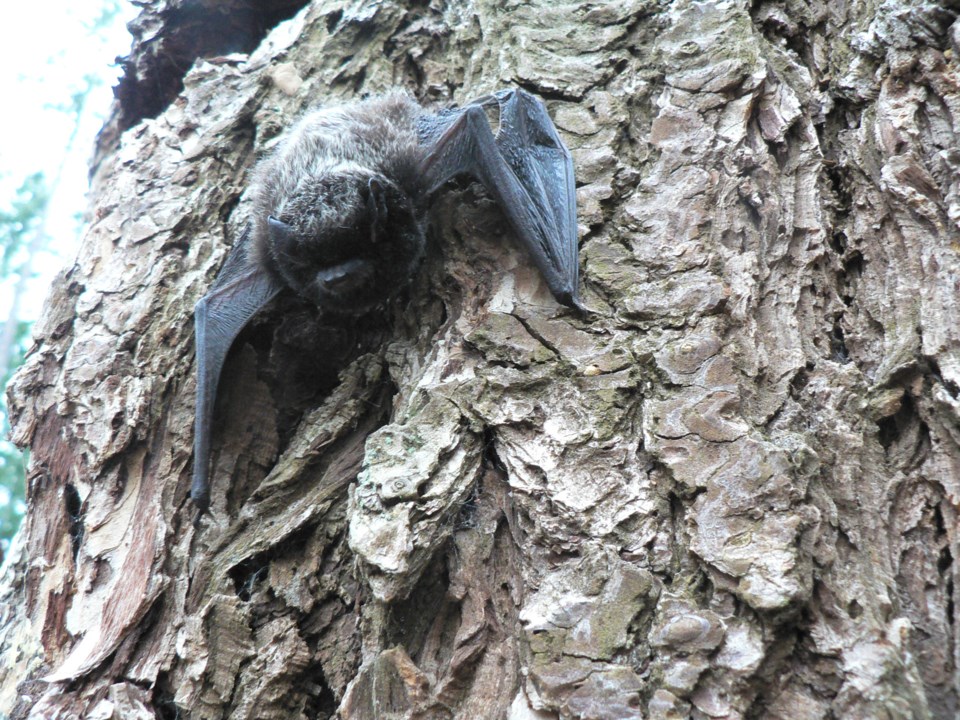With bats still being linked to the outbreak of COVID-19 in China, a local program decided to use International Bat Appreciation Day to dispel “misinformation.”
The BC Community Bat Program used Friday, April 17 to remind people about the importance of bats and that the spring is a perfect time to admire bats in your back yard, as mid-April is often when bats emerge from their long winter sleep.
There have been several unverified links between bats and the source of the pandemic late last year, so the bat program here in B.C. said it is keen to “share current, accurate information…and issues around bat and human health.”
“Our program strives to educate people about bats and dispel misinformation that may lead to persecution of bats,” said the organization in a press release.
“We are not public health experts or virologists; our information comes cited sources (citation at www.bcbats.ca).”
BC bats and COVID-19:
• Bats in BC do not have or spread SARS-CoV-2 (the virus that causes COVID-19 in humans). SARSCoV-2 is not found in North American bat species at present.
• Transmission of COVID-19 is from humans to other humans.
• There are theoretical concerns about the possibility for transmission of SARS-CoV-2 from humans to bats. Research is underway, until we know more, precautions to minimize the chance of North American bats of being exposed to SARS-CoV-2 are being taken. This is not unique to bats - there are also concerns of possible transmission from humans to other wildlife species, particularly mustelids, felids and canids.
• Avoid handling live bats and any wildlife. If handling live bats cannot be avoided, follow recommendations about PPE to prevent spread of respiratory droplets – a face mask, thick gloves, etc.
o The concern is transmission of SARS-CoV-2 from humans to bats, not vice versa, so handling dead bats is fine. Dead bats provide valuable information to bat biologists. To collect a bat dead, wear gloves, wrap in paper towel, and double bag in a Ziploc. Place on ice or in freezer until the bat can be retrieved. Avoid any skin contact to prevent rabies exposure and keep pets and children away.
Bat conservation and COVID-19
• Many bat species have adapted to urban and rural environments, where they coexist safely with people. Ask us about living with bats safely.
• It is important that bats and bat habitat are not be destroyed because of unfounded fears over coronavirus transmission.
• Bats in BC are in trouble from habitat loss and white-nose syndrome - half of our 15 BC species are currently ’at-risk’.
• Bats are essential to our BC ecosystems and economy. In the US, bats are estimated to provide 23 billion USD of natural pest control each year.
• Killing bats would not have any effect on the spread of COVID-19, but would negatively affect bat populations, conservation efforts, and our economy.
The BC Community Bat Program would like to remind people they are there to answer your questions and collect reports on bat sightings, bat roosts, and dead bats. Contact them at [email protected] or 1-855-922-2287 ext. 11.



